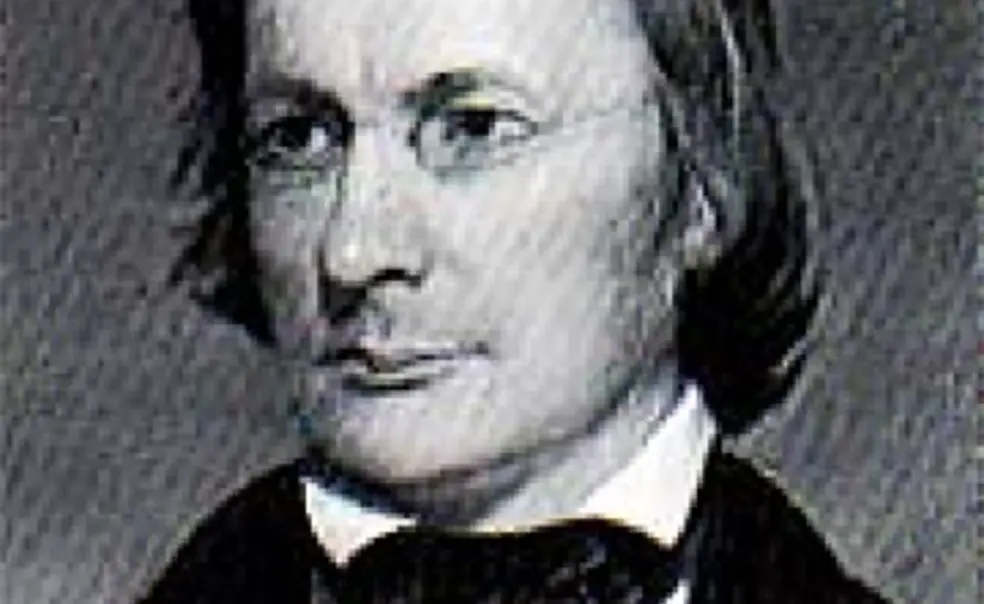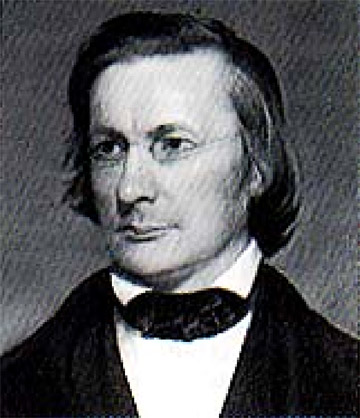Rally 'Round the Cannon
From John Maclean 1816’s letters, a portrait of an overlooked president
I’ve always had a healthy regard for the resource-constrained underdog – very likely the result of a lifetime rooting for the White Sox and my personal icon, Bill Veeck(similar, for those not conversant in the National Pastime, to rooting for Anne Hathaway against Meryl Streep in The Devil Wore Prada). Reading the lifelong correspondence of John Maclean Jr. 1816, Princeton’s 10th president, brings this feeling to the surface almost immediately.
Here’s a guy whose entire 86-year life – literally, he was born in Princeton to the college’s chemistry professor – and significant intellect were bent to one purpose: the advancement of the College of New Jersey. And what does he get? Trustee intrigue and the confusing competition of the Seminary, the dissolution of the country and the rending of his student body, and the incessant financial instability of the entire operation. He saves the place through his effort to revive the faculty, then watches Nassau Hall burn in 1855. He finally lives to see his successor revive the College, even writes the definitive history of its first century, but dies 10 years short of the great Sesquicentennial of 1896. It’s very like Moses being shown the Promised Land while being told he can’t go in; you get the uncomfortable sense that God is methodically making fun of both of them.
To this day there are four Princeton presidents who are the acknowledged guiding beacons of its path: Witherspoon, McCosh, Wilson 1879, and Goheen ’40 *48. I concur, but in doing so feel the special need to light a candle to (Veeck, Moses, and) Maclean – the guys who toil ceaselessly in the vineyard, then are shuffled off before the wine is drinkable.
So it warms my heart to see the Archives’ recent acquisition of a large chunk of Maclean’s correspondence from across the 19th century with his spectrum of admirers, acquaintances, and even (God help us) Princeton parents, more than 200 pieces in all. The papers casually appeared on the market last year, and the Princetoniana Committee’s marauding pBay collectors, in this case reconfederated as the Gang of Twelve, tippytoed back into the murk of market acquisitions and emerged with the prize for Mudd Library. So here’s a locomotive for Frank Sloat ’55, Bob Rodgers ’56, Donald Farren ’58, Paul Sittenfeld ’69, Jan Kubik ’70, Steven Brown ’77, pBay capo Dave Cleaves ’78, Sev Onyshkevych ’83, Cynthia Penney ’83, Scott Clemons ’90, and Jonathan Sapan ’04 for their acquisitive accomplishments in tribute to Maclean.
One of the best aspects of the new Maclean papers collection, thanks in part to a grant from the New Jersey Historical Commission, is that every jot and tittle (I’ve been trying to work that phrase in for a few months now) of the wildly diverse material is available online to all you good folk in Dubuque who don’t get to visit Olden Street very often. Get out your bifocals and laptop and have a blast!
Among the dozens of letters, many of the most intriguing are those from Maclean himself, which number 25 in total. There’s an 1828 piece chastising local ministers on behalf of the Synod (he had a divinity degree from the Seminary himself). There’s an ornate 1849 missive on heavy official-looking paper protesting the political ouster of the Princeton postmaster in a rigged election. Following Maclean’s ascendance to the College presidency, there’s an 1858 plea with the president of the Free Academy (later CCNY) to award an honorary doctorate to a Princeton trustee (gee, I wonder if that happens anymore?).
And of course, there’s the eternal battle with the students: In his vice-presidential enforcer guise, we have:
From 1832, demonstratively: “My Dir Sir, I am sorry to inform you that your son Mr. Wm. J Buchanan has been directed by the Faculty of our College to return home for an offense against the good order of the College…. He was part of a protest against the prohibition of students at the new billiard hall in town.”
From 1849, ominously: “My Dear Sir, When I saw you last, I understood you to say that you did not wish your son to return home until next Saturday or the Saturday following. He has been absent from the college for two days, and I hope he is at home, but not knowing this to be the case, I have thought it best to inform you that he was at recitation on Saturday, and that he has not attended any College exercise since that time. With the best wishes for your son’s welfare, I remain….”
By 1858, as president he had more magisterial responsibilities, such as informing a prospective parent of projected costs for a year at Princeton: about $230. Gotta keep the oil lamps lit. ...
The huge incoming correspondence and attendant materials are endlessly fascinating, a dissertation waiting to happen. Our eagle-eyed historians at the Archives have pointed out one as the most poignant, however. The inventory of Maclean’s father’s estate at his death in 1814 lists, as the most valuable single items, two slaves. This was in Princeton while young Maclean was a college student; a provocative inheritance, to say the least. He eventually would become, as he grew pre-eminent in the local community over the next 72 years, a founder and principal supporter of the black Witherspoon Street Presbyterian Church, whose pastor from 1880, a Lincoln University graduate, was the father of Paul Robeson. When those suspicious of change advise us to proceed slowly, if at all, we might do well to consider Maclean.
In this spirit (the true spirit of Bill Veeck, who hired Larry Doby h’97 to play for the Cleveland Indians in 1947), we need to recount the sheer love in which Maclean was held. In the seniors’ autograph books of the late 19th century, President McCosh’s inscription often was relegated to the second page; the first was held aside in the hope of a kind word from emeritus icon Maclean. Alexander Leitch ’24 in his great Princeton Companion recounts one reason why: “Maclean was not without a sense of humor. One night two donkeys from a nearby farm were found on the top floor of Nassau Hall. A student on hand at the discovery asked Maclean, with an innocent air, how he thought they had got there. “Through their great anxiety,” Maclean replied, “to visit some of their brethren.”
If you’d like to join the dozens of intrepid Princeton excavators on pBay, e-mail Dave Cleaves ’78 at Oldbooks78@aol.com. Happy digging!













No responses yet